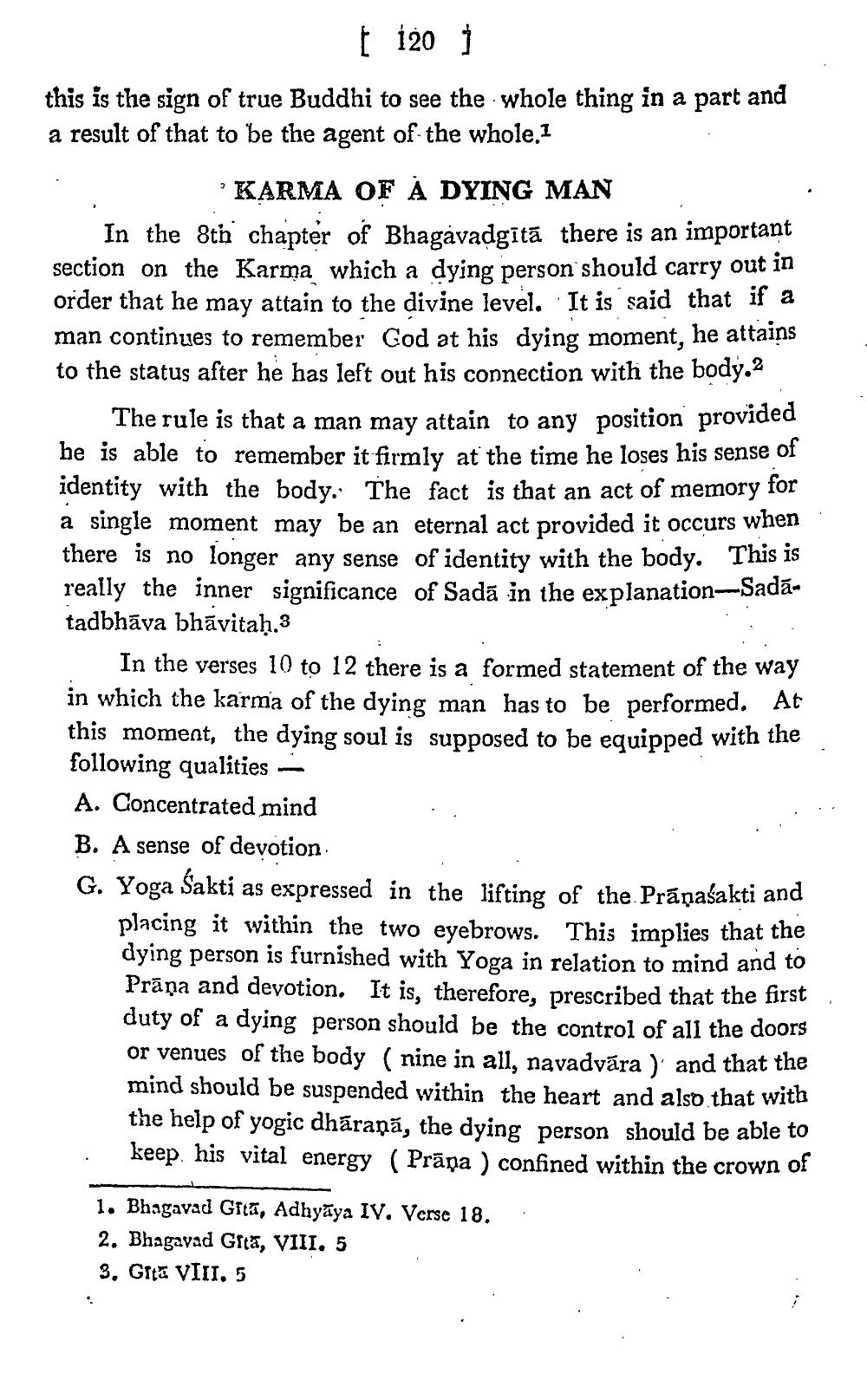________________
[ 120 ) this is the sign of true Buddhi to see the whole thing in a part and a result of that to be the agent of the whole. I
KARMA OF À DYING MAN In the 8th chapter of Bhagavadgitā there is an important section on the Karma which a dying person should carry out in order that he may attain to the divine level. It is said that it a man continues to remember God at his dying moment, he attains to the status after he has left out his connection with the body.2
The rule is that a man may attain to any position provided he is able to remember it firmly at the time he loses his sense of identity with the body. The fact is that an act of memory for a single moment may be an eternal act provided it occurs when there is no longer any sense of identity with the body. This is really the inner significance of Sadā in the explanation--Sadā. tadbhāva bhāvitaḥ.3
In the verses 10 to 12 there is a formed statement of the way in which the karma of the dying man has to be performed. At this moment, the dying soul is supposed to be equipped with the following qualities - A. Concentrated mind B. A sense of devotion G. Yoga Sakti as expressed in the lifting of the Pránasakti and
placing it within the two eyebrows. This implies that the dying person is furnished with Yoga in relation to mind and to Prāņa and devotion. It is, therefore, prescribed that the first duty of a dying person should be the control of all the doors or venues of the body ( nine in all, navadvāra ) and that the mind should be suspended within the heart and also that with the help of yogic dhāraṇā, the dying person should be able to
keep his vital energy (Prāņa ) confined within the crown of 1. Bhagavad Gita, Adhyāya IV. Verse 18. : 2. Bhagavad Gita, VIII, 5 3. Gita VIII. 5




